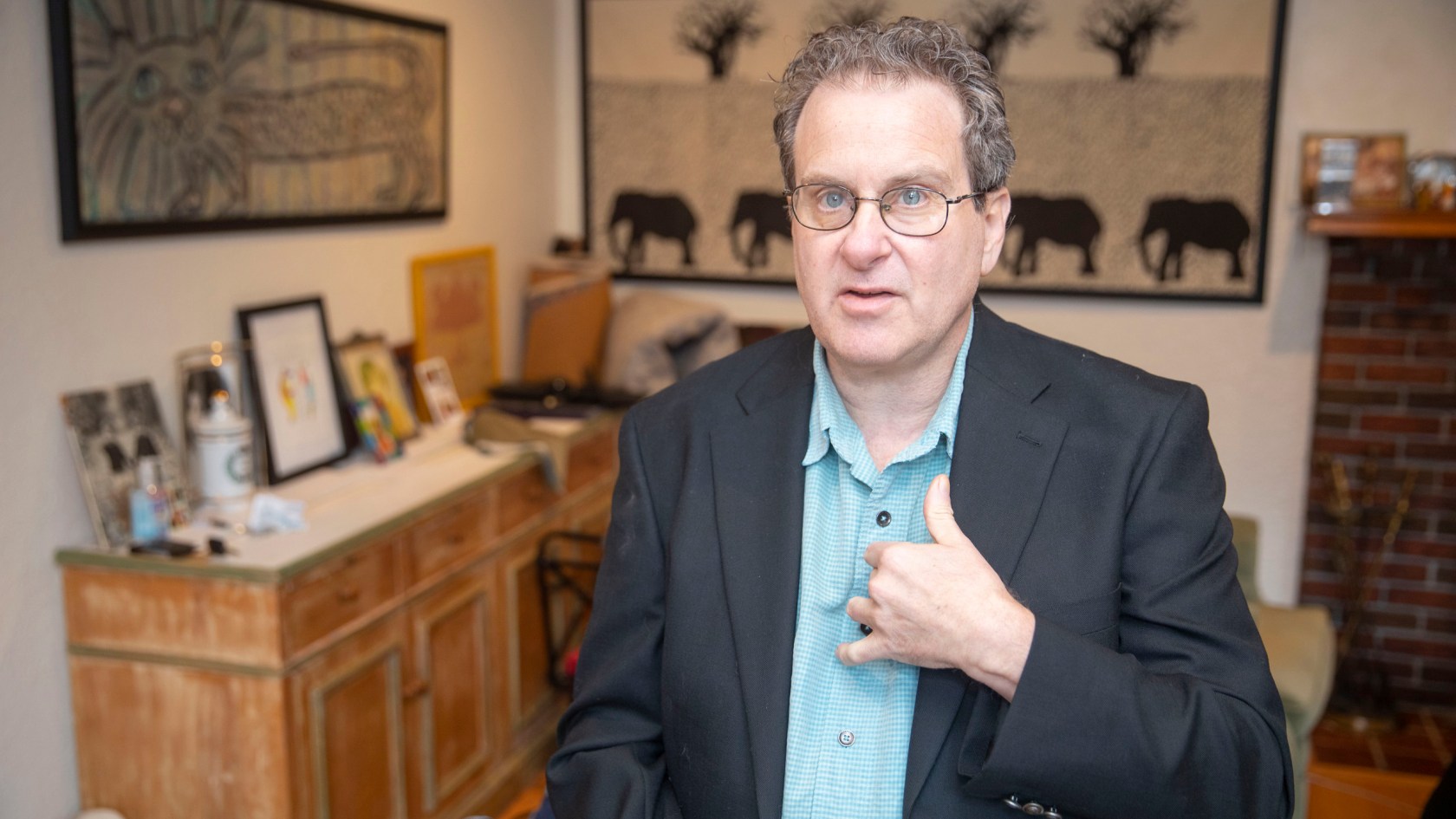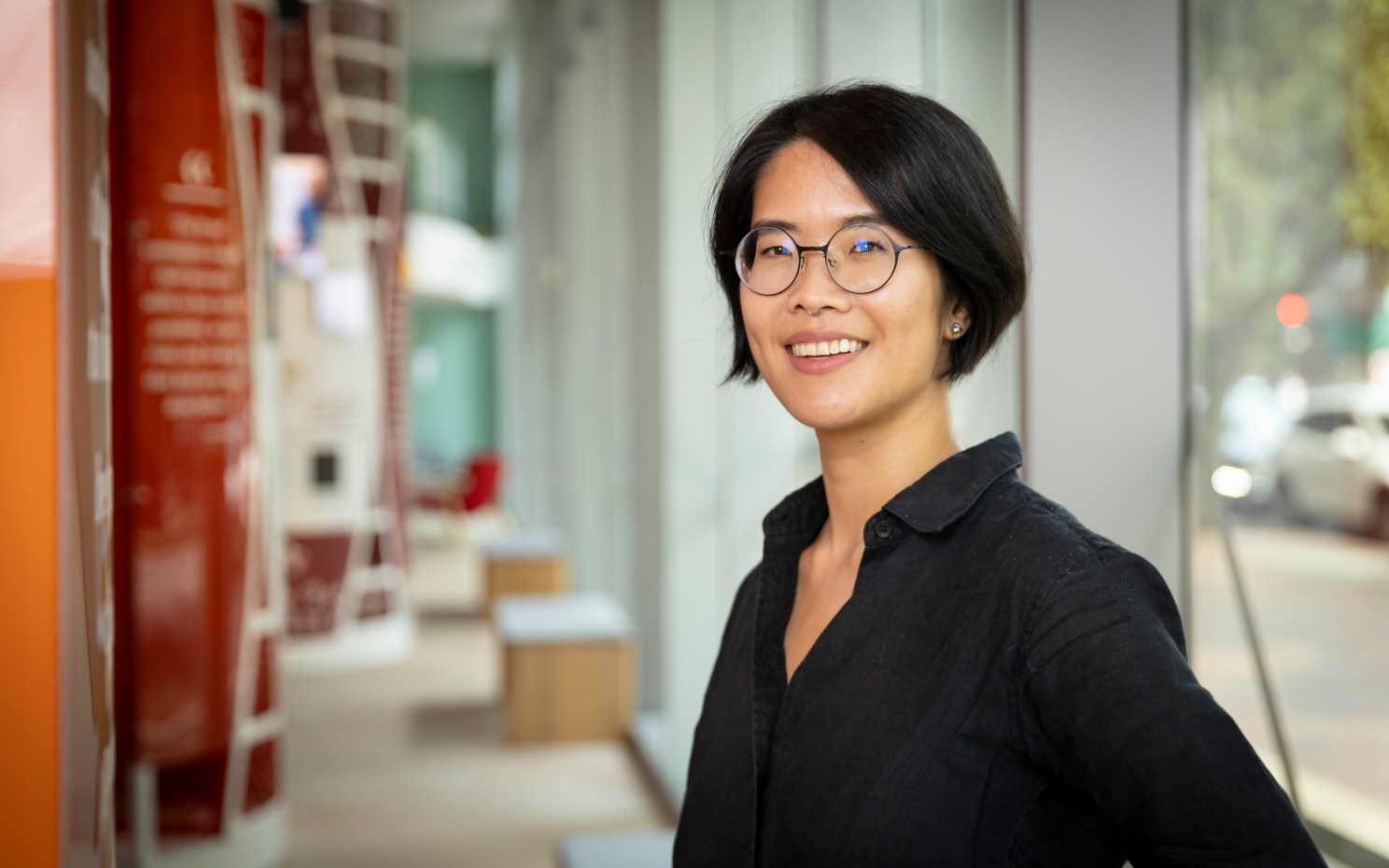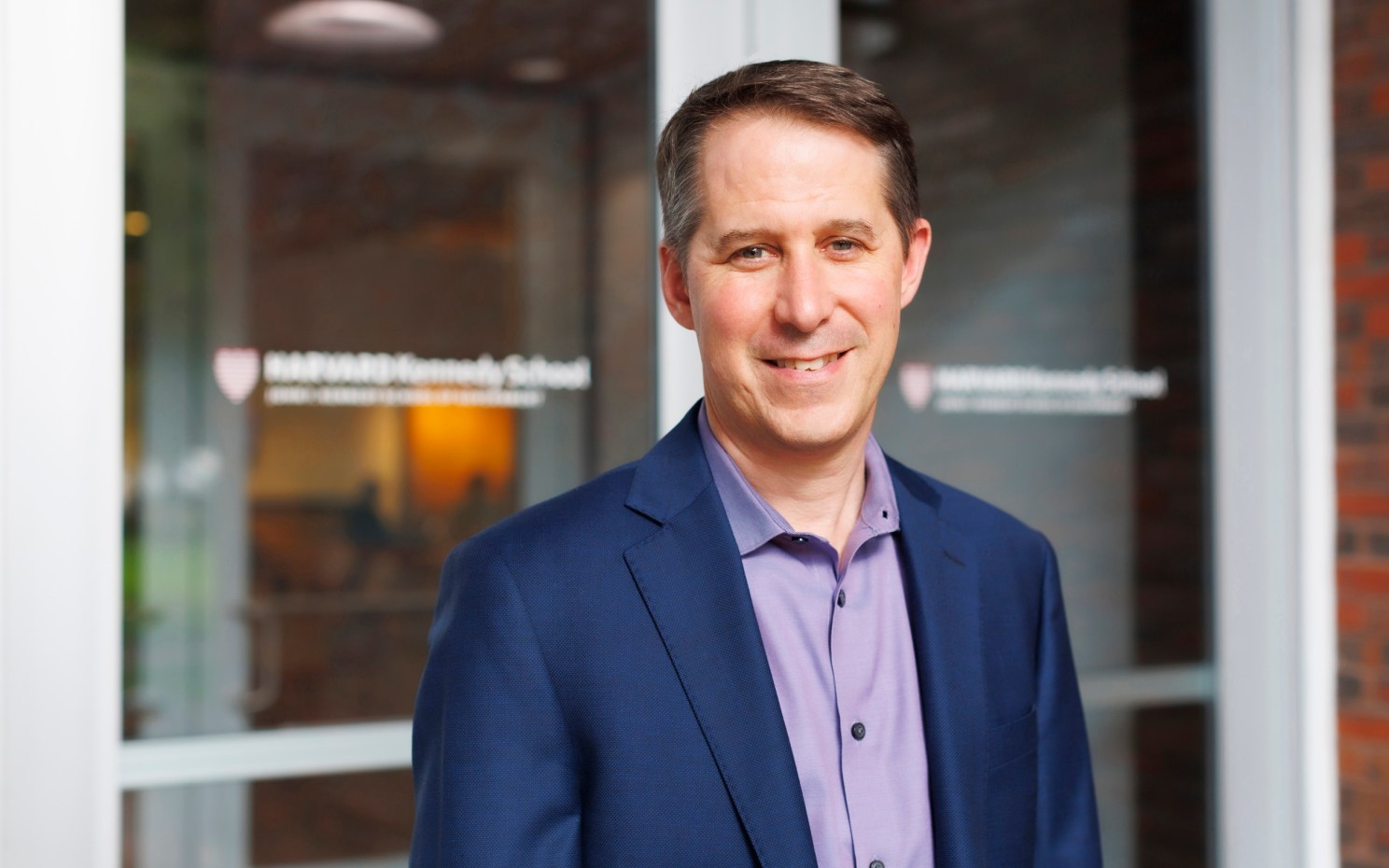
Kris Snibbe/Harvard Staff Photographer
The art of self-healing
Peter Grinspoon was a doctor with a dark secret. When a patient or colleague needs to hear the details, he doesn't hold back.
When Peter Grinspoon describes the dangers of substance abuse to future doctors and nurses, he speaks from experience.
In his early years as a primary care doctor in Boston, addiction devoured Grinspoon’s practice and his life. He snorted oxycodone in his office, wrote fraudulent prescriptions for his wife and their children’s nanny, and colluded with patients to share medications. He has no memory of the overdose he suffered, and yet he’ll never forget it.
“There is a common misconception that people who are addicted to drugs are happy hedonists,” he said. “But in reality, they are the most miserable people walking the earth.”
Even as his marriage unraveled, Grinspoon’s relationship with drugs continued. The life-saving rupture came after the State Police and Drug Enforcement Administration raided his medical office in February 2005. Grinspoon was charged with three felonies for having written fraudulent prescriptions for narcotics. He was sentenced to two years of probation and 90 days of rehab. He lost his license. After a decade of trying to re-create the euphoria of his first experiment with opioids, he had found his bottom.
“What I say to medical students is this: ‘Your addiction will get addressed at some point,”’ said Grinspoon, a Harvard Medical School instructor and Massachusetts General Hospital clinician now more than 15 years into recovery. “It’s just a question of whether it gets addressed on your terms — if you ask for help — or on everybody else’s terms, like in my case, with the criminal justice system and the medical board involved. That is so much more painful … It’s better to take the hit early and say, ‘I need help.’”
Massachusetts Physician Health Services, which supports doctors and medical students fighting substance abuse disorders and other mental health issues, helped Grinspoon get his life and career back on track, and then hired him to do the same for his peers.
“I sat at the same table, just on the other side,” said Grinspoon. “I worked with hundreds of doctors that were addicted. I know two doctors who died lonely overdose deaths in locked closets in their hospitals, and I know a bunch of doctors who, as we speak, are homeless.”
“My most important message, if you’re dealing with a loved one who is addicted, is: Don’t give up on them.”
Addiction can be a taboo subject in the medical profession, even as a perfect storm of high stress and easy access to controlled substances puts doctors at higher risk of developing a problem. Whereas 9 percent of the general population will struggle with substance abuse during their lifetime, the rate among physicians runs between 10 and 15 percent. Thanks to pandemic burnout, the situation may be worsening.
“First at all, doctors are under a lot of stress, and then there’s the expectations,” said Grinspoon. “There is this culture that doctors are supposed to be perfect; they don’t get sick, they don’t have any problems, and that culture makes it harder for us to ask for help.”
Grinspoon credits his recovery to his family’s support and contingency management provided by Physician Health Services and the state medical board, which required years of negative drug tests before reinstating his license in 2010. “If you get a positive drug test, you can’t have your license back,” Grinspoon said. “So much of our identity and livelihood goes into being a physician. On some level, I just couldn’t give that up.”
The experience of addiction humbled Grinspoon and made him a more compassionate physician in general, but especially when dealing with people afflicted in the same way. To his surprise, most patients are supportive when they learn of his past. Some are grateful to have a doctor with such intimate knowledge of nearly losing everything. “I’m not looking down upon them or judging them,” he said. “I’ve been there. I have walked in their shoes.”
It’s an attitude that has opened eyes and hearts in the profession, according to Laura Kehoe, a physician and Harvard Medical School assistant professor who has known Grinspoon for decades. “Peter has helped to destigmatize and demystify addiction by having the strength to speak about his experience,” she said.
Recovery is for life, Grinspoon emphasized, and requires family and peer support. “My most important message, if you’re dealing with a loved one who is addicted, is: Don’t give up on them. If you use the tough love approach, you’ll never see them again; they’re going to overdose and die.”
His own part, he says, is to continue to support colleagues facing stress, burnout, and mental health issues, and to advocate for addiction treatments that involve patience, compassion, and hope. “I’ve seen so many people die from addiction or lose everything,” he said. “I literally could have been one of them. I’m just grateful to have had the resources, the support, and the help to make it from one side to the other.”







